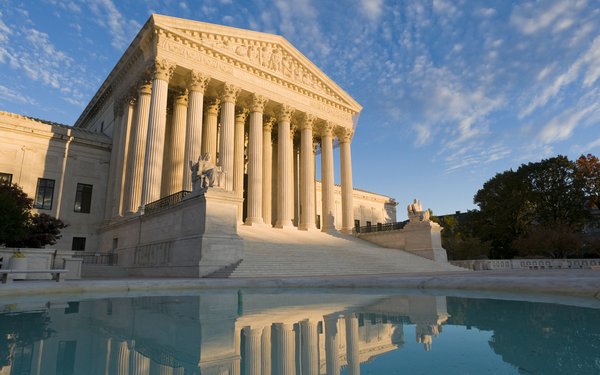
Two ad companies are urging the Supreme Court to
strike down an Austin, Texas ordinance that prohibits digital billboards in locations other than the advertisers' premises.
In papers filed with the court on Wednesday, Reagan National
Advertising of Texas and Lamar Advantage Outdoor say the city's law violates the First Amendment.
The local ordinance “operates as an effective prohibition, rather than a mere
restriction, on certain messages from certain speakers,” the ad companies write, adding that nonprofits and advocacy groups are particularly likely to lack access to on-premises signs.
“For example, issue-advocacy groups with remotely
staffed hotlines assisting with crisis-pregnancy programs or gay and lesbian support may not put up signs advertising such services,” the companies argue. “In the realm of commercial
speech, workers who independently offer in-home services, such as piano tuning, repairs, or elder care, cannot promote their services on signs unless they have premises in Austin.”
advertisement
advertisement
The
legal dispute dates to 2017, when Reagan National Advertising of Texas and Lamar Advantage Outdoor sued Austin over its restrictions.
Austin, like most Texas cities, only allows digital
billboard ads on the advertisers' property.
City officials say the restriction aims to preserve the local landscape, and limits distractions on the road.
The ad companies want to
convert non-digital outdoor ads to digital ones on 83 billboards in Austin.
The companies claimed in their lawsuit that the distinction between on-premises and off-premises digital billboards
runs afoul of the First Amendment, which generally restricts the government from regulating speech based on subject matter.
A trial judge upheld the ordinance, but the 5th Circuit Court of
Appeals struck it down.
That court said the only way to know whether a billboard was on a company's property was by reading it, which rendered the restriction content-based.
The city
is now appealing that decision to the Supreme Court. Austin officials contend
its restrictions on digital signs are content-neutral because they apply equally to all off-premises signs.
“The ordinance defines signs based on their off-premises status (i.e., the
lack of nexus between the sign and its location); it does not prohibit anyone from speaking on any particular topic or voicing any particular viewpoint,” Austin officials argued to the
court.
The city also contended that the ordinance is justified because billboards can “create esthetic harms,” and digital billboards -- with their “changing images and
bright lights” -- pose an additional risk of distraction.
"On-premises signs ... are by definition integrated with an existing property and are thus less visually distracting than an
off-premises sign that stands alone,” the city said in its appeal.
The ad companies counter that city officials failed to present evidence to the trial judge about digital signs'
potential to cause harm.
The city “offered no studies, surveys, or statistics showing that digital signs are either more dangerous or intrusive than traditional signs -- much less that
the differential treatment of on-premises and off-premises signs is justified,” the ad companies write.
A broad array of outside groups -- including the outdoor advertising company
Outfront Media, free speech watchdog Knight First Amendment Institute and local chambers of commerce -- are siding with Austin in the battle.
The Supreme Court is expected to hear
the case in its upcoming term, but has not yet set a date for arguments.